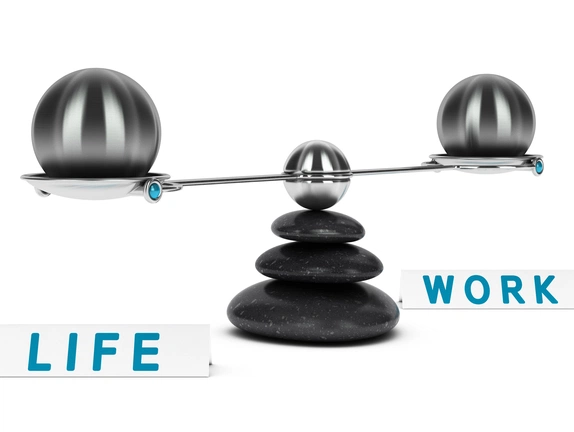Productivity , Home Office
21 de February de 2024 - 17h01m
ShareLet's talk in this article about some tips on how to manage time at work or even in your daily life to achieve desired results, and still have time to rest, go to the gym or, if needed, move on to other tasks.
So here are some suggestions on how to manage time:
In order to have better personal organization and time management, spend less time on distractions like WhatsApp, social media, and even indiscriminate reading of emails throughout the day.
A trick is to disable phone message notifications and email alerts and reserve one or two minutes during the day to check messages, emails, or social media. If you are "addicted" to your phone, I suggest you make an effort to get rid of this habit because it not only affects your schedule but also your health.
2. Weekly planning and review
To start the week with a plan, better manage your time, and be more productive, set aside time each week to plan activities for the week and review open issues, personal projects, and even professional projects on hold.
If necessary, the weekly plan can be modified as the week progresses.

3. Create a schedule
It is necessary to have a schedule where you can see your daily, weekly, or even monthly commitments.
Use a paper or electronic agenda, or even a time management spreadsheet, to better organize your tasks and deadlines to complete them.
There are several tools to help you with this. So no matter where you are, you will be able to quickly find everything you planned for the coming year, commitments made.
One more thing: look at this agenda every morning or at the end of the previous day (preferably) and already see your agenda for the next day.
4. Get rid of pending matters from your mind
Write down unanswered questions so you don't waste time thinking about them - which can greatly hinder your productivity - and choose a time to resolve them. These "unanswered" questions are occupying an important space in your brain, exhausting it, and consuming a lot of energy.
As an analogy, it's like your phone is always searching for a Wi-Fi signal. It drains the battery, doesn't it?
To do this - get the unanswered questions out of your mind - you can use a paper agenda, your phone, create a WhatsApp group just for yourself, or even an app - for example, the To Do app, but there are many other applications.
5. Do it now, don't leave it for tomorrow
When a task that requires a short period of time - such as sending an urgent email - comes up, do it right away. It's called "no procrastination". If it takes too long, plan it. See how long it will take and plan a few days or a period to solve the problem. This way you gain optimized time!
Don't leave it for later, or it may become another unfinished item on your urgent list.
6. Stay focused
Do not multitask, start and finish one task at a time. A study from the Institute of Psychiatry at the University of London has shown that multitasking can reduce productivity by up to 40%.
It's the same story as "driving" and answering the phone, attention gets distracted, some part of what is being executed is lost. In this case, the focus on traffic - which certainly was a worthy priority at the time - was compromised.
That being said, despite the mental illusion that you are doing many things at the same time, know that each task will end up taking longer to be completed than if done individually.
7. Know how to prioritize
Analyze your tasks for the day and follow your plan. In addition, think about priorities: differentiate between urgent and important, important and not urgent, and see if you classified something as "urgent and not important" and rushed or focused on something that shouldn't be.
Studies have shown that most people spend most of their time doing "important and urgent" things, known as "firefighting" - that is, they are always putting out fires. For good time management and productivity, ideally spend about 70% of your time on "important and not urgent" things. Signs of planning, organization, productivity, and efficiency.
8. Manage your time
Be careful with the "1-minute" attention requests from others! These demands are true traps for time management and work organization.
This deadline is never real and can consume precious 30 or 40 minutes of your time that you would not have otherwise. Organize conversations, review your agenda, and see where you have gaps that do not disrupt your plans.
So what do you think? Now just put into practice all the tips on how to manage time at work that we've given you with this article.
If you are interested in getting the best out of your remote team using our software and productivity monitoring, click here and watch a completely free system presentation.

